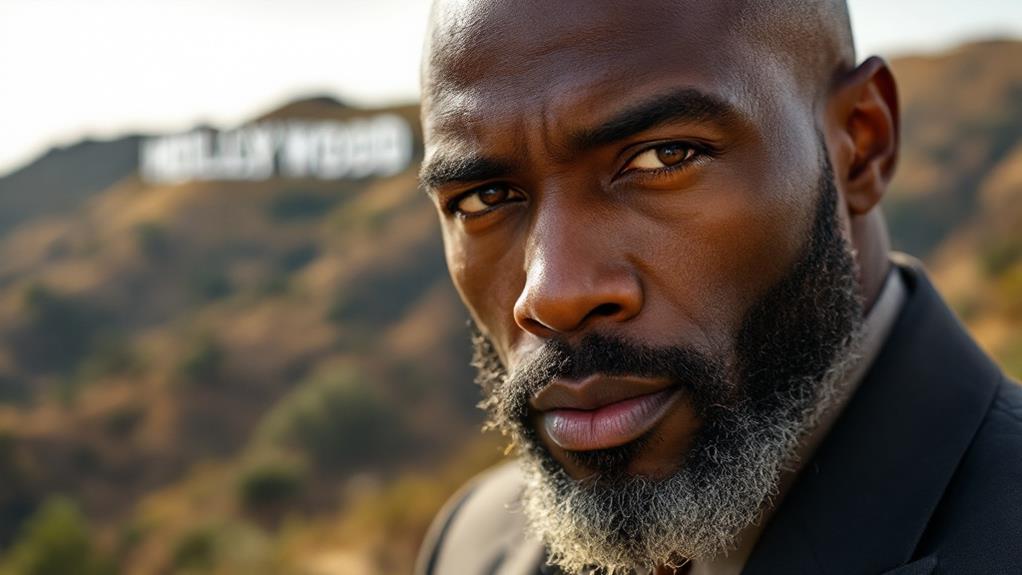Nigerian Soccer: From Local Leagues to International Fame

You'll find Nigerian soccer's [exploration] from local leagues to international fame mirrors the country's own rise on the global stage. Introduced in the early 20th century, football quickly became Nigeria's national sport. The country's youth teams have dominated global competitions, with the Golden Eaglets winning five FIFA U-17 World Cups. Nigeria's Olympic gold in 1996 and the Super Falcons' nine African Women's Cup of Nations titles showcase the nation's soccer prowess. Despite challenges in infrastructure and funding, Nigerian football continues to produce world-class talent. [Investigate] further to uncover the full story of Nigeria's soccer evolution.
Origins of Nigerian Football
As you plunge into the origins of Nigerian football, you'll find a story deeply intertwined with the country's colonial history and path to independence. The British introduced the sport to Nigeria in the early 20th century, with the first recorded match taking place in 1904. From that moment, football's popularity soared, quickly becoming the national game by the 1950s.
This rise coincided with Nigeria's nationalist movements, as football inspired political freedom and unity. Prominent figures like Nnamdi Azikiwe, a key nationalist leader, played essential roles in both the country's independence and the development of the sport. In 1945, the Nigerian Football Federation was established, marking the formal governance of football in the country.
As Nigeria's passion for the sport grew, so did its presence on the African stage. The national team began participating in the African Cup of Nations in the 1960s, culminating in their first championship win in 1980 in Lagos. This victory solidified Nigeria's position as a footballing powerhouse on the continent and laid the foundation for the development of local leagues and the national team's future success.
Rise of Youth Soccer
From the grassroots to the global stage, Nigeria's rise in youth soccer has been nothing short of extraordinary. You'll find that Nigerian football's success story begins with its young players, who've dominated international competitions for decades.
The Golden Eaglets, Nigeria's under-17 team, have won the FIFA U-17 World Cup a groundbreaking five times. This exceptional achievement has established Nigeria as a powerhouse in youth soccer. The Flying Eagles, the under-20 team, have also made their mark, qualifying for the 1983 FIFA World Youth Championship and nearly clinching the title in 1989's "Miracle of Damman."
These youth teams have consistently produced talented Nigerian players who've gone on to represent the senior national team, the Super Eagles. The 1985 U-17 team's victory at the inaugural FIFA U-17 World Cup paved the way for Nigeria's international respect and success.
You can trace Nigeria's commitment to developing young talent back to the early 1980s. This focus on youth soccer has paid dividends, reshaping Nigerian football from local leagues to a force to be reckoned with on the global stage.
Nigeria's Olympic Soccer Triumph

Nigeria's youth soccer success reached its pinnacle in 1996 when the U-23 national team, nicknamed the "Dream Team," clinched the gold medal at the Atlanta Summer Olympics. This historic victory marked Nigeria's first-ever Olympic gold and solidified the country's position as a rising force in international football.
Led by captain Nwankwo Kanu and featuring talents like Jay Jay Okocha and Sunday Oliseh, the Dream Team showcased Nigeria's prowess on the global stage. They defeated Brazil 4-3 in the semi-finals and Argentina 3-2 in the final, demonstrating their ability to compete with soccer powerhouses.
This triumph had far-reaching effects on Nigerian soccer. It inspired a new generation of players who would go on to represent the Super Eagles in the African Cup of Nations and even break into the English Premier League. The Olympic success also paved the way for Nigeria's dominance in youth competitions, including multiple FIFA U-17 World Cup victories.
Beyond the soccer pitch, the Dream Team's achievement united the nation, cultivating a sense of esteem and showcasing Nigeria's potential in international football. This Olympic triumph remains a defining moment in the country's soccer history.
Women's Soccer Dominance
The Super Falcons soared to unparalleled heights in African women's soccer, establishing Nigeria as a dominant force on the continent. You'll find that their success isn't just limited to Africa, as they've made their mark on the World Cup stage too. The Nigeria Football Federation has worked tirelessly to develop women's soccer, ensuring it's become increasingly popular among fans.
The Nigeria Premier League has played an essential role in nurturing quality players, providing a platform for talented women to showcase their skills. From this pool, national team coaches can invite players to represent the country. The Super Falcons' dominance is evident in their achievements:
- Nine-time African Women's Cup of Nations champions
- First African team to reach the World Cup quarterfinals
- Consistently ranked among the top teams in Africa
While the men's team boasts stars like Vincent Enyeama, the women's side has produced its own crop of exceptional players. Their success has inspired a new generation of female footballers, and for the first time, you're seeing increased investment and support for women's soccer in Nigeria.
Football Infrastructure and Support

Despite exceptional advances in player development, Nigeria's football infrastructure remains a challenge. You'll find that many clubs in Nigeria struggle with inadequate facilities, from subpar training grounds to dilapidated stadiums. This affects the quality of play and the overall experience for both players and fans.
The top division, the Nigeria Professional Football League, faces obstacles in attracting sponsors and maintaining consistent funding. As a result, you'll notice that many talented league players often seek opportunities abroad, weakening the domestic competition. Football clubs often operate on shoestring budgets, making it difficult to retain the best team members or invest in youth academies.
You'll also see that the role of Head Coach in Nigerian football can be precarious, with frequent turnover due to financial constraints and pressure for immediate results. Despite these challenges, football in Nigeria remains deeply ingrained in the culture. You'll find passionate supporters rallying behind their favorite football club, even in the face of infrastructural shortcomings. To truly enhance Nigerian soccer on the global stage, you must recognize the need for sustained investment in grassroots development and improved facilities across the country.
International Success and Recognition
Over the years, Nigerian soccer has left an enduring, lasting, permanent mark on the international stage. You'll find Nigerian success stories archived from the original records of various international competitions. The Golden Eaglets have dominated the U-17 World Cup, clinching the title a record five times. Meanwhile, the Flying Eagles have made their presence felt in U-20 tournaments, reaching the final in 1989.
Nigeria's prowess isn't limited to youth soccer. The Olympic team's gold medal victory in 1996, defeating powerhouses like Brazil and Argentina, showcased the nation's ability to compete at the highest level. On the women's side, the Super Falcons have been a force to reckon with in African football.
Nigerian players have also made their mark in club football:
- Many have starred for top teams like Real Madrid and Barcelona
- Nigerian talent is well-represented in the English Premier League
- Players from Nigeria have graced pitches from Manchester United to New York
When African countries come together for continental tournaments, Nigeria often emerges as a dominant force. The nation's victory in the 2014 Unity World Cup in Equatorial Guinea further solidified its status as a soccer powerhouse.


